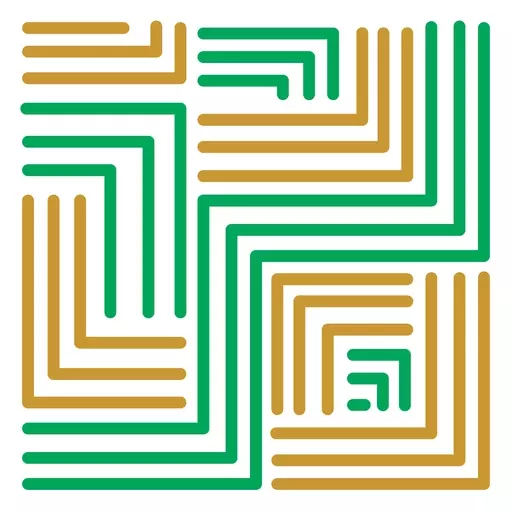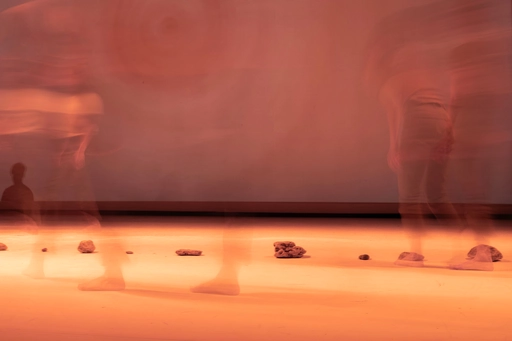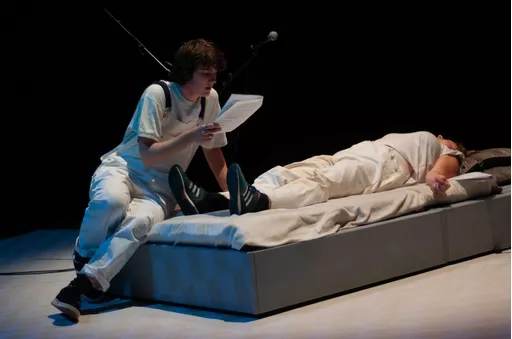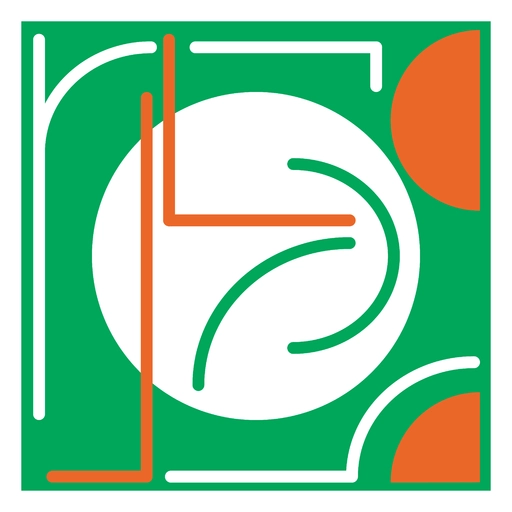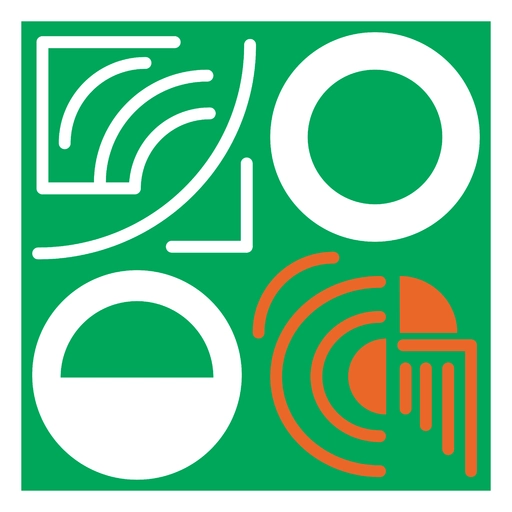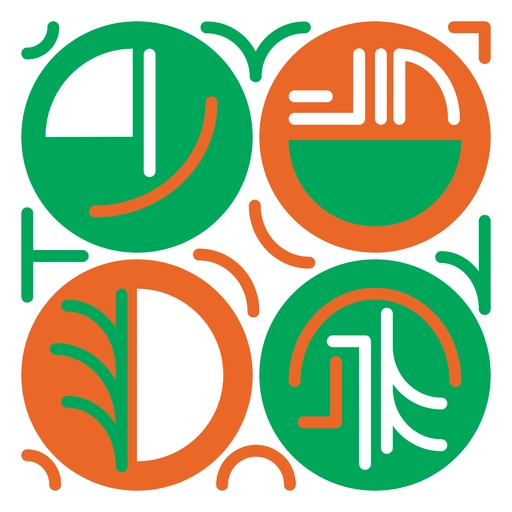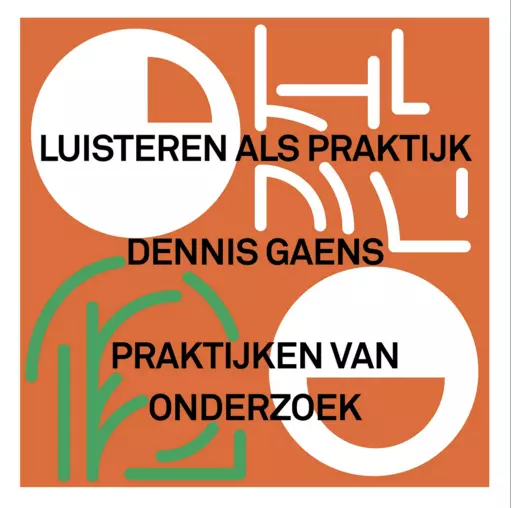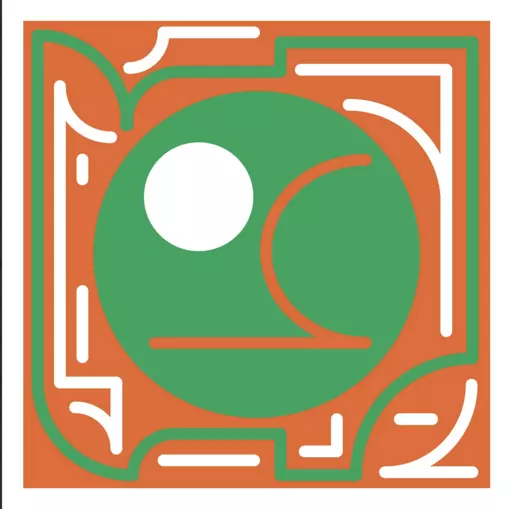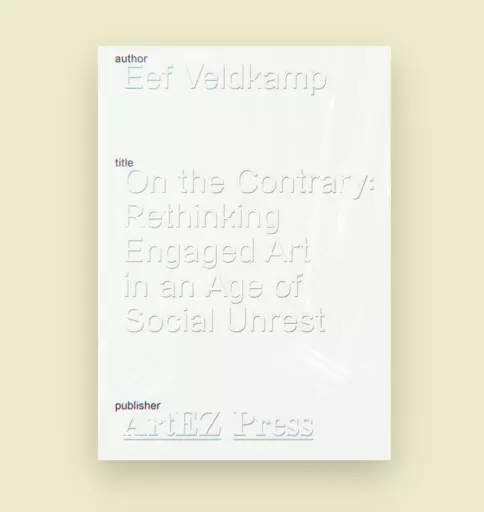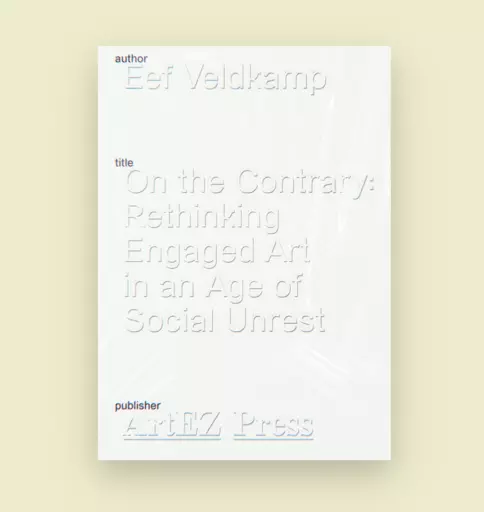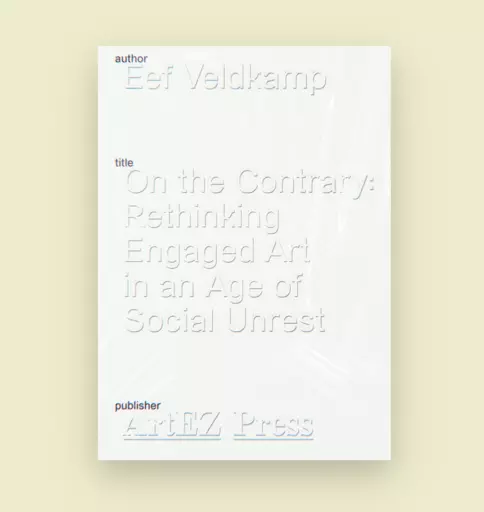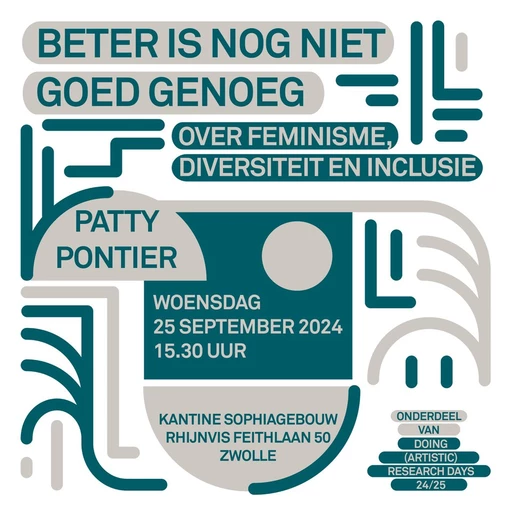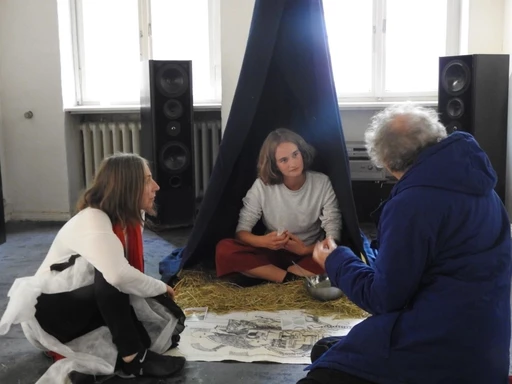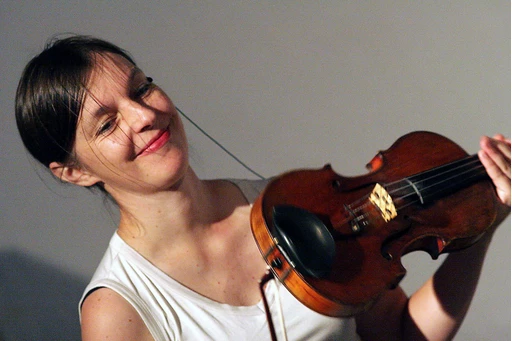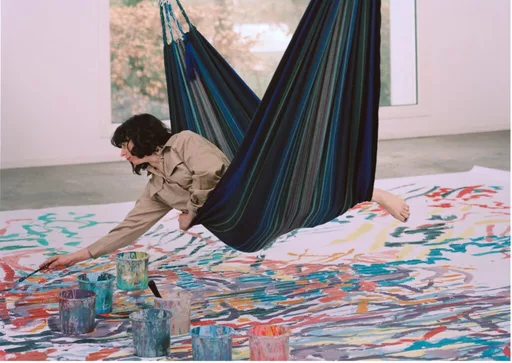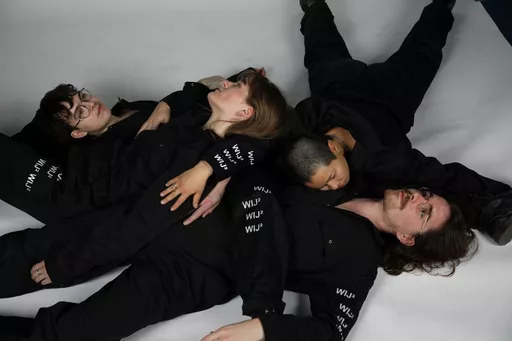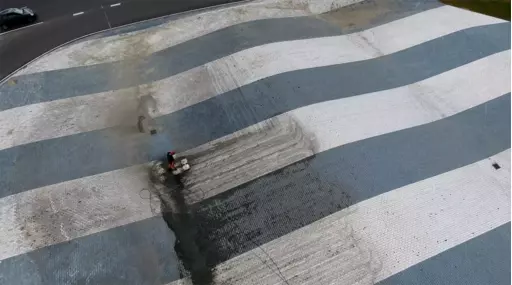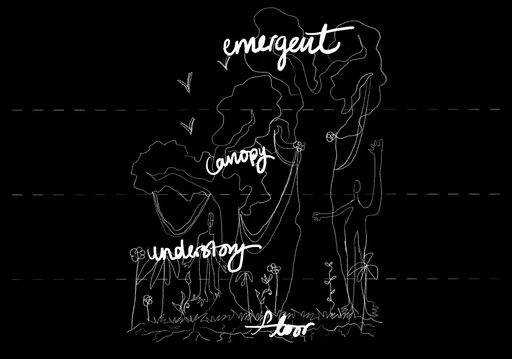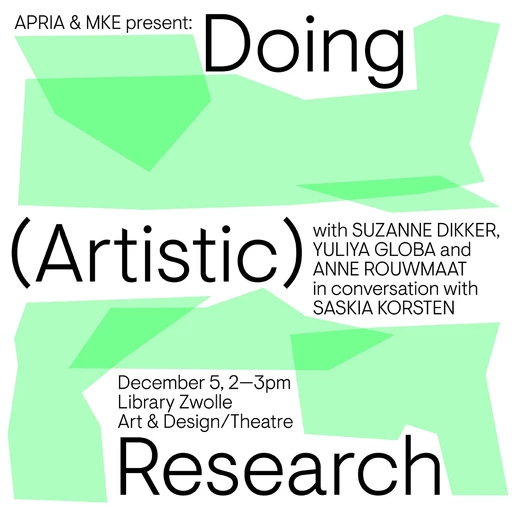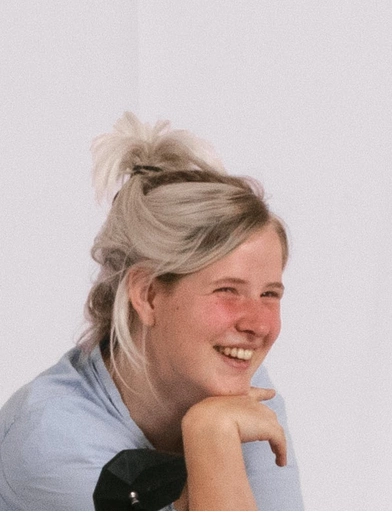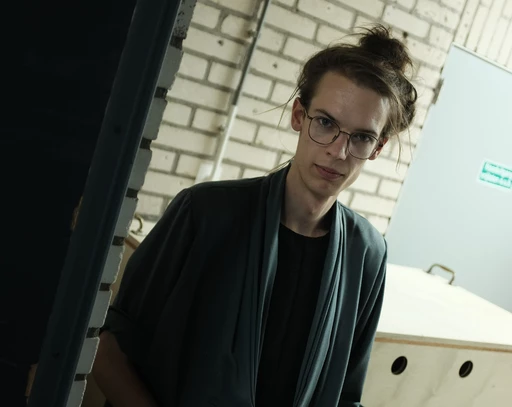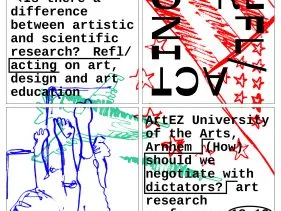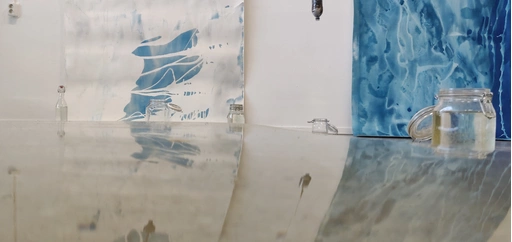
Niet-mensen als leraren
Maken-met-worden-met-componeren-met-water
25 apr. 2024 Sophiagebouw → Rhijnvis Feithlaan 50, Zwolle
(archive)
Host: Mirjam Zegers
Met veel plezier nodigt Studium Generale je uit voor de workshop-lezing met Martine van Lubeek, artistiek onderzoeker en ArtEZ BEAR-alumna. Deze workshop-lezing maakt deel uit van onze serie Research in and through the arts.
English below
In deze precaire tijden van crises, ecologische neergang en snel veranderende landschappen vraagt de wereld - of schreeuwt zij misschien zelfs - om nieuwe pedagogieën. Nadenkend over haar eigen leerervaringen, realiseerde Martine zich dat haar belangrijkste leerervaringen plaatsvonden buiten het traditionele klaslokaal: aan de oevers van rivieren, meren en beken, in het bos en op de geplaveide straten van Arnhem. Meer nog dan door menselijke leraren, waren haar ervaringen beïnvloed door waterlichamen, mossen, bomen, planten en vele andere niet-mensen die zich op deze plaatsen bevonden. Zij koos voor gesitueerd leren door te doen, te voelen en aansluiting te zoeken bij haar omgeving.
Biologe en filosofe Donna Harraway benadrukt het belang van dit soort kinship (verwantschap) in deze antropocentrische tijden: ‘Wie en wat we ook zijn, we moeten maken-met-worden-met-componeren-met,’ want volgens haar is dit de enige manier voor mensen om het Antropoceen te 'overleven' en de verhalen van de wereld over meerdere soorten te erkennen.
In deze workshop-lezing zal Martine van Lubeek de verhalen van haar artistieke onderzoekspraktijk met elkaar verweven, de wisselwerking tussen theorie en praktijk bespreken en voorbeelden geven van andere makers met vergelijkbare manieren van artistiek onderzoek. Uitgaande van het water dat in de ruimte aanwezig is, zullen we vervolgens beginnen met een etnografische mapping om het maken-met-worden-met-componeren-met-water in de praktijk te brengen.
Lees ook dit artikel dat Martine van Lubeek publiceerde op APRIA: LISTENING TO BODIES OF WATER
Titelbeeld: Water uit de Rijn als onderdeel van de installatie (Un)Filtering Polyphony (2022). Foto: Martine van Lubeek
In deze precaire tijden van crises, ecologische neergang en snel veranderende landschappen vraagt de wereld - of schreeuwt zij misschien zelfs - om nieuwe pedagogieën. Nadenkend over haar eigen leerervaringen, realiseerde Martine zich dat haar belangrijkste leerervaringen plaatsvonden buiten het traditionele klaslokaal: aan de oevers van rivieren, meren en beken, in het bos en op de geplaveide straten van Arnhem. Meer nog dan door menselijke leraren, waren haar ervaringen beïnvloed door waterlichamen, mossen, bomen, planten en vele andere niet-mensen die zich op deze plaatsen bevonden. Zij koos voor gesitueerd leren door te doen, te voelen en aansluiting te zoeken bij haar omgeving.
Biologe en filosofe Donna Harraway benadrukt het belang van dit soort kinship (verwantschap) in deze antropocentrische tijden: ‘Wie en wat we ook zijn, we moeten maken-met-worden-met-componeren-met,’ want volgens haar is dit de enige manier voor mensen om het Antropoceen te 'overleven' en de verhalen van de wereld over meerdere soorten te erkennen.
In deze workshop-lezing zal Martine van Lubeek de verhalen van haar artistieke onderzoekspraktijk met elkaar verweven, de wisselwerking tussen theorie en praktijk bespreken en voorbeelden geven van andere makers met vergelijkbare manieren van artistiek onderzoek. Uitgaande van het water dat in de ruimte aanwezig is, zullen we vervolgens beginnen met een etnografische mapping om het maken-met-worden-met-componeren-met-water in de praktijk te brengen.
Lees ook dit artikel dat Martine van Lubeek publiceerde op APRIA: LISTENING TO BODIES OF WATER
Titelbeeld: Water uit de Rijn als onderdeel van de installatie (Un)Filtering Polyphony (2022). Foto: Martine van Lubeek
Non-Humans as Teachers
Making-with-becoming-with-composing-with water
In these precarious times of crises, ecological downfall and fast-changing landscapes, the world asks - or maybe even screams - for new pedagogies. Reflecting on her own learning experiences, she realised that her most impactful learning experiences took place outside the traditional classroom, at the shores of rivers, lakes, and streams, in the woods and on the paved streets of Arnhem. She realised that her experiences had been influenced by bodies of water, mosses, trees, plants and many other non-humans situated within these places, even more than by human teachers. She chose for situated learning by doing, feeling and making kin with her surroundings.
Biologist and philosopher Donna Harraway highlights the importance of this kind of kinship in these anthropocentric times: “Who and whatever we are, we need to make-with-become-with-compose-with” for she believes this is the only way for humans to ‘survive’ the Anthropocene and acknowledge the multispecies stories of the world.
In this workshop-lecture, Martine van Lubeek will interweave the stories of her artistic research practice, discuss the interplay between theory and practice and give examples of other makers with comparable ways of doing artistic research. Departing from the water present in the room, we will then start an ethnographic mapping to put making-with-becoming-with-composing-with water into practice.
You can also read this article by Martine for APRIA: LISTENING TO BODIES OF WATER
Title image: Water from the Rhine river as part of the installation (Un)Filtering Polyphony (2022). Photo: Martine van Lubeek
In these precarious times of crises, ecological downfall and fast-changing landscapes, the world asks - or maybe even screams - for new pedagogies. Reflecting on her own learning experiences, she realised that her most impactful learning experiences took place outside the traditional classroom, at the shores of rivers, lakes, and streams, in the woods and on the paved streets of Arnhem. She realised that her experiences had been influenced by bodies of water, mosses, trees, plants and many other non-humans situated within these places, even more than by human teachers. She chose for situated learning by doing, feeling and making kin with her surroundings.
Biologist and philosopher Donna Harraway highlights the importance of this kind of kinship in these anthropocentric times: “Who and whatever we are, we need to make-with-become-with-compose-with” for she believes this is the only way for humans to ‘survive’ the Anthropocene and acknowledge the multispecies stories of the world.
In this workshop-lecture, Martine van Lubeek will interweave the stories of her artistic research practice, discuss the interplay between theory and practice and give examples of other makers with comparable ways of doing artistic research. Departing from the water present in the room, we will then start an ethnographic mapping to put making-with-becoming-with-composing-with water into practice.
You can also read this article by Martine for APRIA: LISTENING TO BODIES OF WATER
Title image: Water from the Rhine river as part of the installation (Un)Filtering Polyphony (2022). Photo: Martine van Lubeek

related content

Martine van Lubeek
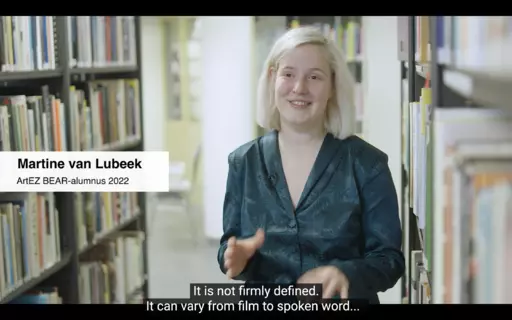
Doing (Artistic) Research- Introduction Pilot Programme
Introduction video about the Doing (Artistic) Research programme
more in this series:
16 mei 2025 - Research in and through the arts
Re-contextualising default narratives in collected content
26 mrt. 2025 - Research in and through the arts
APRIA Lecture and Workshop with Feli Navarro & YiLing Hung, Arnhem
25 mrt. 2025 - Research in and through the arts
APRIA Lecture and Workshop with Feli Navarro & YiLing Hung, Zwolle
05 feb. 2025 - Research in and through the arts
The Performance Night - Art & Technology
01 feb. 2025 - Research in and through the arts
Water’s Endlessness: the interview as research method in an expanded field of interlocutors
29 jan. 2025 - Research in and through the arts
Oneigenlijk gebruik; Een praktijkuitwerking van de kunstfilosofie van de kritische theorie
21 jan. 2025 - Research in and through the arts
Atlas van verhalen; Verhalen in kaart en (an)archief
17 jan. 2025 - Research in and through the arts
Luisteren als praktijk
09 jan. 2025 - Research in and through the arts
Live event: Provotyping Futures & (Non) Human Capital
17 dec. 2024 - Research in and through the arts
Listening and serendipity as actors in improvisation
12 dec. 2024 - Research in and through the arts
Onderzoek voor onderwijsontwikkeling
12 dec. 2024 - Research in and through the arts
Online event: Provotyping Futures & (Non) Human Capital
12 dec. 2024 - Research in and through the arts
Master Exchange Research Day(s) 2024 by Corpo-real
11 dec. 2024 - Research in and through the arts
Fabulation as Artistic Research Method
04 dec. 2024 - Research in and through the arts
Practicing Criticality
29 nov. 2024 - Research in and through the arts
AI (Art Intelligence) and/or AI (Artificial Intelligence)
29 nov. 2024 - Research in and through the arts
Master Exchange Research Day(s) - by Qiyun Zheng
28 nov. 2024 - Research in and through the arts
Minisymposium: Prototyping Futures
06 nov. 2024 - Research in and through the arts
3. On the Contrary: Rethinking Engaged Art in an Age of Social Unrest
04 nov. 2024 - Research in and through the arts
Master Exchange Research Day(s)
17 okt. 2024 - Research in and through the arts
2. On the Contrary: Rethinking Engaged Art in an Age of Social Unrest
11 okt. 2024 - Research in and through the arts
1. On the Contrary: Rethinking Engaged Art in an Age of Social Unrest
25 sep. 2024 - Research in and through the arts
Lezing Patty Pontier: Beter is nog niet goed genoeg
11 apr. 2024 - Research in and through the arts
Het toeval in de canon
31 okt. 2023 - Research in and through the arts
Artistic Practice as Means for Investigation in Artistic Research
28 sep. 2023 - Research in and through the arts
APRIA Represents: Doing (Artistic) Research
13 jun. 2023 - Research in and through the arts
Doing Artistic research: Collective Making invites WIJ²
30 mei 2023 - Research in and through the arts
Between Blue Waves and Green Corridors
20 apr. 2023 - Research in and through the arts
Rainforest as Methodology: Workshop with Cruda Collective
05 dec. 2022 - Research in and through the arts
Doing (Artistic) Research with Suzanne Dikker, Yuliya Globa and Anne Rouwmaat in conversation with Saskia Korsten
13 okt. 2022 - Research in and through the arts
Doing (Artistic) Research: Martine van Lubeek and Sharon Stewart
03 okt. 2022 - Research in and through the arts
Expositie en interview Stan Frijsinger (Alumnus Creative Writing 2022)
18 nov. 2016 - Research in and through the arts
